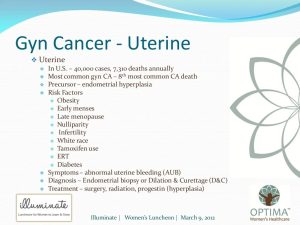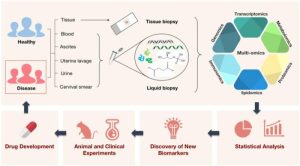
Embark on a journey through the realm of women’s health after 40, where secrets to vitality and well-being await discovery. Buckle up for an enlightening ride filled with insights, tips, and empowering stories tailored for the fabulous forties and beyond!
Are you ready to unlock the fountain of youth and embrace a healthier lifestyle like never before? Let’s delve into the world of women’s health after 40 and pave the way for a vibrant future ahead!
Women’s Health After 40
As women reach the age of 40 and beyond, there are several health concerns that become more prevalent. It is essential for women in this age group to prioritize their health and well-being through regular check-ups, screenings, and maintaining a healthy lifestyle.
Common Health Concerns
- Heart health: Risk of heart disease increases after 40, making it crucial to monitor blood pressure, cholesterol levels, and maintain a healthy diet and exercise routine.
- Bone health: Post-menopausal women are at higher risk of osteoporosis, emphasizing the need for adequate calcium intake, weight-bearing exercises, and bone density screenings.
- Breast health: Regular mammograms and self-breast exams are vital in detecting any changes or abnormalities early on, improving the chances of successful treatment.
- Mental health: Hormonal changes and life transitions can impact mental well-being, highlighting the importance of seeking support and practicing self-care.
Importance of Check-ups and Screenings
Regular check-ups and screenings play a crucial role in early detection and prevention of various health conditions. Women over 40 should schedule routine visits with their healthcare providers for comprehensive assessments and screenings tailored to their age group.
Hormonal Changes
Hormonal fluctuations, especially during perimenopause and menopause, can lead to symptoms like hot flashes, mood swings, and sleep disturbances. Consulting with a healthcare provider can help manage these changes effectively.
Maintaining a Healthy Lifestyle
- Eating a balanced diet rich in fruits, vegetables, whole grains, and lean proteins can support overall health and reduce the risk of chronic diseases.
- Staying physically active through regular exercise, such as cardio, strength training, and flexibility exercises, can improve heart health, bone density, and mental well-being.
- Prioritizing adequate sleep, managing stress, and avoiding tobacco and excessive alcohol consumption are essential for promoting overall well-being after 40.
Healthcare for Women Over 40
As women age past 40, prioritizing their health becomes essential for overall well-being and longevity. Preventive care plays a crucial role in managing various health concerns that may arise during this stage of life.
Role of Preventive Care
Preventive care involves regular health check-ups, screenings, and vaccinations to detect and address any health issues early on. For women over 40, preventive care can help in early detection of conditions like heart disease, breast cancer, osteoporosis, and more, leading to better treatment outcomes and improved quality of life.
Importance of Mental Health Support
Mental health is equally important as physical health, especially for women in their 40s and beyond. The challenges of midlife, such as career changes, empty nest syndrome, and aging parents, can take a toll on mental well-being. Having access to mental health support and resources is crucial for managing stress, anxiety, and depression effectively.
Relationship between Menopause and Overall Health
Menopause, a natural phase in a woman’s life typically occurring in her 40s or 50s, can impact overall health in various ways. Hormonal changes during menopause can lead to symptoms like hot flashes, mood swings, and sleep disturbances. Managing these symptoms through lifestyle modifications, hormone therapy, and regular medical check-ups is key to maintaining good health during this transition.
Benefits of Personalized Healthcare Plans
Personalized healthcare plans tailored to individual needs and risk factors can significantly benefit women in midlife. These plans consider factors like family history, lifestyle choices, and personal health goals to create a customized approach to managing health. By addressing specific concerns and focusing on preventive measures, personalized healthcare plans empower women over 40 to take control of their well-being and lead healthier lives.
Health Addictions in Women Over 40

Addiction can affect women of all ages, but the challenges faced by women over 40 can be unique. As women age, they may encounter various addiction issues that can have a significant impact on their physical and mental well-being. It is essential to address these challenges and provide support for women seeking to overcome addiction at this stage of life.
Common Addiction Issues
- Alcoholism: Women over 40 may struggle with alcohol addiction, which can have detrimental effects on their health, relationships, and overall quality of life.
- Prescription Drug Abuse: As women age, they may be prescribed medications for various health conditions, leading to potential misuse and dependence on these drugs.
- Smoking: Tobacco addiction can be particularly harmful for women over 40, increasing the risk of cardiovascular disease, respiratory issues, and cancer.
Impact of Addiction
- Physical Health: Addiction can take a toll on women’s physical health, leading to chronic conditions, compromised immune function, and increased risk of diseases.
- Mental Health: Addiction can exacerbate mental health issues such as anxiety, depression, and cognitive decline, impacting women’s overall well-being and quality of life.
Strategies for Overcoming Addiction
- Seeking Professional Help: Women over 40 should consider reaching out to healthcare professionals, therapists, or support groups for guidance and treatment options.
- Healthy Lifestyle Changes: Adopting a healthy diet, regular exercise routine, and stress management techniques can support recovery and overall well-being.
- Building a Support System: Surrounding oneself with understanding and supportive individuals can provide encouragement and accountability during the recovery process.
Success Stories
- Julie, 45, successfully quit smoking after seeking counseling and joining a support group tailored for women over 40.
- Linda, 50, overcame alcohol addiction by incorporating meditation, yoga, and healthy habits into her daily routine.
Alternative Treatments for Women’s Health
Acupuncture, herbal remedies, and mindfulness practices are gaining popularity as alternative treatments for promoting women’s health after the age of 40. These holistic approaches focus on addressing the root cause of health issues and improving overall well-being.
Acupuncture for Women Over 40
Acupuncture, an ancient Chinese healing practice, involves inserting thin needles into specific points on the body to restore balance and promote healing. For women over 40, acupuncture can help alleviate symptoms associated with menopause, such as hot flashes, mood swings, and insomnia. It can also aid in managing chronic pain conditions, improving digestion, and reducing stress levels.
Herbal Remedies for Women’s Health
Herbal remedies have been used for centuries to treat various health conditions and promote overall wellness. For women over 40, certain herbs like black cohosh, dong quai, and red clover can help regulate hormonal imbalances, alleviate menopausal symptoms, and support reproductive health. It is essential to consult with a qualified herbalist or healthcare provider before incorporating herbal remedies into your routine.
Mindfulness Practices for Women’s Well-being
Mindfulness practices, such as meditation, yoga, and deep breathing exercises, can have a profound impact on women’s health after 40. These practices help reduce stress, improve mental clarity, boost mood, and enhance overall quality of life. Integrating mindfulness into daily routines can promote relaxation, resilience, and emotional well-being.
Integrating Alternative Treatments with Traditional Healthcare
When exploring alternative treatments, it is crucial to communicate with your healthcare provider to ensure a comprehensive approach to managing your health. Integrating alternative therapies with traditional healthcare can offer a well-rounded and personalized treatment plan. Be open and transparent about the alternative treatments you are considering, and work collaboratively with your healthcare team to achieve optimal health outcomes.
Health Dentistry for Women After 40

As women enter their 40s and beyond, there are specific dental concerns that they should be aware of to maintain good oral health. Regular dental check-ups and proper oral hygiene practices are essential for overall health.
Common Dental Concerns for Women in Their 40s and Beyond
- Increased risk of gum disease: Hormonal changes during menopause can lead to a higher risk of gum disease. It’s important to maintain good oral hygiene to prevent gum issues.
- Tooth sensitivity: With age, the enamel on teeth can wear down, leading to increased sensitivity. Using toothpaste for sensitive teeth can help alleviate this issue.
- Tooth decay: Women over 40 may be at higher risk for tooth decay due to changes in saliva production. Regular dental check-ups can catch and treat cavities early.
Importance of Oral Hygiene and Regular Dental Check-ups
Regular brushing, flossing, and using mouthwash are crucial for preventing dental issues. Additionally, scheduling regular dental check-ups can help catch any problems early on, preventing more serious issues in the future.
Dental Treatments Specifically Beneficial for Women Over 40
- Dental implants: For women who have lost teeth due to age or other reasons, dental implants can be a long-lasting solution to restore their smile.
- Teeth whitening: As teeth naturally darken with age, professional teeth whitening treatments can help women feel more confident about their smile.
- Invisalign: For women who may have alignment issues with their teeth, Invisalign can be a discreet and effective way to straighten teeth without traditional braces.
Tips for Maintaining Good Oral Health as Women Age
- Stay hydrated: Drinking plenty of water can help maintain saliva production, which is essential for keeping the mouth clean and healthy.
- Eat a balanced diet: Consuming nutritious foods can help support overall oral health and prevent dental issues.
- Avoid tobacco products: Smoking can increase the risk of gum disease, tooth decay, and oral cancer. Quitting smoking can greatly improve oral health.
Health Fitness for Women in Midlife
Regular exercise and physical activity play a crucial role in maintaining overall health and well-being, especially for women over 40. As women approach midlife, staying active becomes even more important to prevent age-related health issues and maintain a high quality of life.
Importance of Regular Exercise
Regular exercise helps women over 40 maintain a healthy weight, improve cardiovascular health, boost mood and mental well-being, increase muscle mass, and enhance flexibility and balance. It also reduces the risk of chronic conditions such as heart disease, diabetes, and osteoporosis.
- Engage in a mix of cardio, strength training, and flexibility exercises to target different aspects of fitness.
- Choose age-appropriate activities like walking, swimming, yoga, Pilates, and cycling to reduce the risk of injury.
- Consult a fitness professional to create a personalized workout plan that suits your fitness level and goals.
Tips for Staying Motivated
Staying motivated to exercise can be challenging, but there are strategies to overcome common barriers and maintain a consistent fitness routine in midlife.
- Find an exercise buddy or join a fitness group to stay accountable and motivated.
- Set realistic goals and track your progress to celebrate your achievements along the way.
- Mix up your routine with different activities to prevent boredom and keep things interesting.
Success Stories
Many women in their 40s have transformed their health and fitness through regular exercise, leading to significant improvements in their overall well-being.
“I started incorporating strength training into my routine and noticed a significant increase in my energy levels and muscle tone. It’s been life-changing for me.” – Sarah, 45
“By committing to regular yoga practice, I’ve improved my flexibility, reduced stress levels, and feel more grounded and centered in my daily life.” – Emily, 42
Health Medicine and Women Over 40
As women age past 40, their health needs may change, leading to the use of various medications to manage conditions. It is crucial for women in this age group to understand the importance of medication adherence and be aware of potential side effects that may arise.
Common Medications for Women’s Health Issues
Many women over 40 may be prescribed medications to address common health issues such as menopause symptoms, osteoporosis, heart disease, and diabetes. These medications play a vital role in managing these conditions and improving overall health outcomes.
Medication Adherence and Side Effects
Adherence to prescribed medications is essential for women over 40 to effectively manage their health conditions. It is crucial to follow the prescribed dosage and schedule to ensure optimal treatment outcomes. However, women should also be aware of potential side effects that may occur and consult their healthcare provider if any concerns arise.
Role of Personalized Medicine
Personalized medicine has emerged as a revolutionary approach in treating women’s health conditions post-40. By considering individual genetic makeup, lifestyle factors, and personal preferences, healthcare providers can tailor treatment plans to meet the specific needs of each woman, leading to more effective and personalized care.
New Developments in Healthcare for Women in Midlife
Advancements in healthcare and medicine continue to evolve to cater to the unique needs of women in midlife. From innovative treatment options for menopause to preventive strategies for heart disease and cancer, women over 40 now have access to a wide range of cutting-edge healthcare solutions designed to enhance their quality of life.
Health Pharmacy Tips for Women Over 40
Taking care of your health after 40 involves managing medications and supplements effectively. Here are some tips to help you navigate the pharmacy world for optimal well-being.
Consulting Pharmacists for Drug Interactions and Dosage Adjustments
It is essential to consult with pharmacists to ensure that your medications and supplements do not interact negatively with each other.
- Always inform your pharmacist about all the medications and supplements you are taking.
- Ask about potential drug interactions before starting a new medication or supplement.
- Discuss any side effects or concerns with your pharmacist for proper guidance.
- Request dosage adjustments if needed, especially as your body changes with age.
Preventive Pharmacy Services for Women’s Health After 40
Preventive services offered by pharmacies can play a crucial role in maintaining your health and well-being.
- Take advantage of services such as cholesterol screenings, blood pressure checks, and immunizations.
- Participate in medication therapy management programs to optimize your drug regimen.
- Stay informed about preventive care measures recommended for women over 40.
- Engage in regular consultations with pharmacists to stay proactive about your health.
Role of Pharmacies in Promoting Women’s Well-being
Pharmacies provide specialized services to support women’s health beyond just dispensing medications.
- Access resources for managing chronic conditions like diabetes, hypertension, and osteoporosis.
- Receive guidance on lifestyle modifications, including diet, exercise, and stress management.
- Benefit from educational materials and counseling sessions on women’s health issues.
- Utilize medication synchronization programs for convenience and adherence to treatment plans.
Weight Loss Strategies for Women After 40
Maintaining a healthy weight can be challenging as women age, especially after reaching the age of 40. Metabolism tends to slow down, hormonal changes occur, and lifestyle factors may also play a role in weight gain. However, with the right strategies and mindset, sustainable weight loss is achievable for women in midlife.
Healthy Eating and Portion Control
- Focus on whole, nutrient-dense foods such as fruits, vegetables, lean proteins, and whole grains.
- Avoid processed foods high in sugar, unhealthy fats, and empty calories.
- Practice mindful eating, pay attention to hunger cues, and stop eating when satisfied, not stuffed.
- Use smaller plates to control portion sizes and avoid overeating.
Meal Planning for Women in Midlife
- Plan your meals and snacks ahead of time to avoid impulsive and unhealthy choices.
- Incorporate a variety of foods to ensure you get all the necessary nutrients.
- Cook at home more often to have control over ingredients and cooking methods.
- Include protein-rich foods to help with muscle maintenance and feeling full longer.
Role of Metabolism and Hormonal Changes
- Metabolism naturally slows down with age, so regular exercise is crucial to boost metabolism and burn calories.
- Hormonal changes, especially during menopause, can lead to weight gain around the abdomen. Focus on strength training to preserve muscle mass and combat this effect.
- Consult with a healthcare provider to address any hormonal imbalances that may be impacting weight loss efforts.
Success Stories of Sustainable Weight Loss
“I started incorporating more vegetables into my meals and cut back on sugary snacks. Combined with regular exercise, I was able to lose weight and feel healthier than ever before.” – Lisa, 45
“By tracking my food intake and staying consistent with my workouts, I was able to shed the extra pounds and maintain my weight loss long-term.” – Sarah, 48
Women’s Health and Holistic Well-being
Women’s health after 40 is a crucial period where mental health, physical health, and overall well-being are interconnected. Taking a holistic approach that addresses these aspects is essential for women in midlife to thrive and maintain a high quality of life.
The Benefits of Holistic Approaches
- Yoga: Practicing yoga can improve flexibility, strength, and mental clarity. It can also help reduce stress and promote relaxation.
- Meditation: Regular meditation can enhance emotional well-being, reduce anxiety, and improve focus and concentration.
- Mindfulness: Being mindful can help women over 40 stay present, reduce negative thought patterns, and improve overall mental health.
Tips for Creating a Holistic Self-care Routine
- Start your day with a few minutes of meditation or deep breathing exercises to set a positive tone for the day.
- Incorporate yoga or stretching exercises into your daily routine to improve flexibility and reduce muscle tension.
- Practice mindfulness throughout the day by staying present and aware of your thoughts and emotions.
- Aim to spend time outdoors in nature regularly to boost mood and overall well-being.
Resources and Support Networks
- Join local yoga or meditation classes to connect with like-minded individuals and receive guidance from experienced instructors.
- Explore online communities and forums dedicated to holistic well-being to find support, inspiration, and valuable resources.
- Consider working with a holistic health coach or therapist specialized in women’s health to create a personalized well-being plan.
Last Point
As we wrap up this enlightening discussion on women’s health after 40, remember that age is just a number, and your well-being knows no limits. Keep embracing healthy choices, seeking preventive care, and nurturing your mind, body, and soul for a fulfilling life ahead. Here’s to thriving in your forties and beyond with grace, strength, and unwavering resilience!
Key Questions Answered
What are some common health concerns for women over 40?
Common health concerns include hormonal changes, bone health, heart health, and menopause-related symptoms.
How important are regular check-ups and screenings for women in their 40s?
Regular check-ups and screenings are crucial for early detection of potential health issues and maintaining overall well-being.
What are some effective strategies for weight management in women over 40?
Effective strategies include healthy eating, portion control, regular exercise, and understanding hormonal changes affecting metabolism.
How can women in their 40s benefit from alternative treatments?
Alternative treatments like acupuncture, herbal remedies, and mindfulness practices can help manage health issues and promote overall well-being.
What role does mental health support play for women over 40?
Mental health support is essential for coping with life transitions, stress, and maintaining emotional well-being in midlife.
:max_bytes(150000):strip_icc()/jefit-fitness-weight-loss-app-d22c2acaf9e34127b6face554591c325.jpg?w=700)





